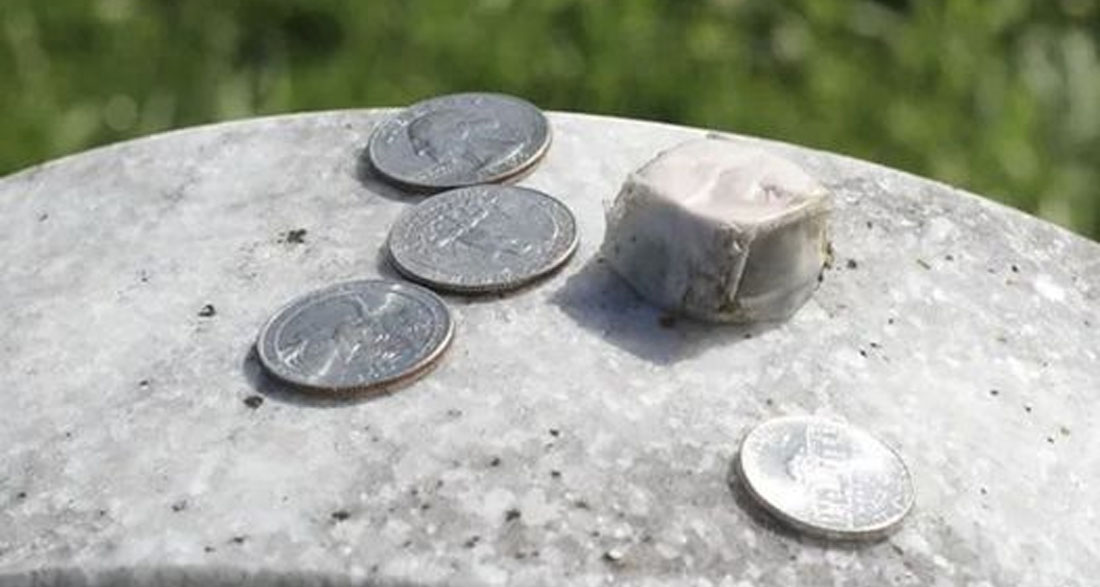Honoring a Loved One with Coins: The Meaning Behind Pennies on Graves
Losing someone you care about is always hard, and finding a way to keep their memory alive becomes important. Many people visit graves to leave flowers, but for veterans and service members, there’s another gesture that stands out—placing a penny or other coins on their gravestones. This simple tradition carries a lot of meaning, especially for military families.
A Tradition Through the Ages
Though we don’t know exactly where this custom started, some people believe it may go back to ancient Rome. Back then, coins were sometimes placed on graves to help the deceased in the afterlife. According to historians, this could be the origin of leaving coins on graves today. However, there isn’t solid proof to confirm this, as Snopes points out.
One thing is clear, though—those who have close connections with military members feel a deep bond. For them, finding a special way to honor their loved ones’ sacrifices is crucial. And coins on graves have become a meaningful way to do that.
The tradition became even more important during the Vietnam War. Back then, emotions were high, and people often struggled to express their feelings about the war. Politics were a big part of the conflict, and it made things complicated.
Placing a coin on a soldier’s grave became a way to honor them without stirring up tough conversations. It was a quiet but powerful way to say, “I respect you,” without having to speak a word. The coin showed respect and unity, offering comfort in a divided time.
What Each Coin Means
Every coin left on a gravestone tells its own story. Here’s what the different coins represent:
- A penny shows that someone visited the grave and paid their respects.
- A nickel means the visitor went through boot camp with the fallen soldier, marking a deeper connection.
- A dime represents that they served together, even if it was only for a short time.
- A quarter holds the most significant meaning—it shows that the person who left it was there when the soldier passed away. This coin tells the family, “I was there with them.”
These coins are more than just loose change—they’re symbols of respect, honor, and remembrance. For families visiting the graves of their loved ones, seeing these coins can be a reminder that their sacrifice is still remembered.
Coins Throughout History
Not all military traditions involve actual money. In the military, service members also use challenge coins. These aren’t worth anything in dollars, but they carry deep meaning. Challenge coins are often given to soldiers as tokens of friendship, bravery, or unity. They are traded and shared as a way to honor each other’s service.
In fact, coins have played important roles in cultures for thousands of years. Some people even believed that coins could bring good luck or wealth to the dead. In certain cases, people were buried with coins or other treasures for the afterlife.
A famous example is President Abraham Lincoln, who was buried with two dollars and fifty cents over his eyes. This shows that the tradition of using coins to mark a meaningful moment goes way back.
Whether it’s a penny on a grave or a challenge coin given in honor, coins have long been used as symbols of respect, luck, and connection.
A Gesture of Priceless Meaning
Leaving a coin on a gravestone might seem like a small act, but it’s filled with deep significance. It’s a way to honor the incredible efforts and sacrifices made by military members and their families. Each coin reminds us that their service is something we should never forget. The true value of their sacrifice is beyond money—it’s priceless.
Have you ever seen a penny on a grave? What do you think about this beautiful tradition? Share your thoughts below!

